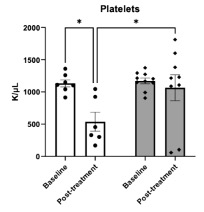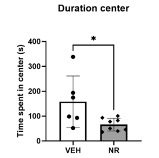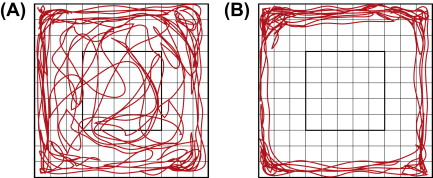Key Points:
- NR prevents stress-induced immune system decline in aged mice.
- NR promotes stress-induced anxiety-like behavior in aged mice.
- Anxiety, a complex emotion, is difficult to measure in mice, and some behavioral tests may not be valid.
A new study from the National Institute on Aging (NIA) suggests the story of NR and aging is more complex than once thought. While NR shows promise in bolstering the immune system, it also appears to heighten sensitivity to stress.
Importance of NAD+ and Its Precursor NR
As we age, our NAD+ levels naturally dwindle in many organs and tissues, including the brain. This decline is implicated in various age-related ailments, from cognitive decline to weakened immune function. As an NAD+ precursor, NR boosts NAD+ levels, potentially leading to the prevention or temporary reversal of age-related NAD+ decline. In replenishing NAD+ levels, NAD+ precursors may mitigate the age-related ailments associated with low NAD+ levels, but scientists are still discovering potential side effects.
NR Prevents Stress-Induced Immune Decline
To investigate NR’s effects on aging, NIA researchers used 94-week-old mice to roughly model 64-year-old humans. These aged mice were divided into two groups: one received NR supplementation, while the other, a control group, did not. Crucially, both groups were subjected to daily physiological stress through injections. This stress component was vital, as the researchers aimed to understand how NR performs not just in healthy aging, but also when the body is under duress, a common reality in human aging.
After six weeks, the NIA scientists carefully examined aspects of the mice’s health, including their blood parameters. Impressively, the NR-treated mice showed protection against stress-induced thrombocytopenia, a condition characterized by a low platelet count, which can impair blood clotting. Furthermore, their immune profiles improved, with increased frequencies of vital immune cells, specifically B and T cells. These findings suggest that NR could indeed play a role in bolstering the immune system, potentially offering a defense against age-related immune decline.

NR Triggers Anxiety-Like Behavior
The study also unveiled a surprising and critical caveat: NR appeared to heighten stress sensitivity in the aged mice. This was evident in their actions, as the NR-supplemented mice exhibited increased anxiety-like behaviors. While their cognitive function remained unaffected, this heightened behavioral response to stress presents a nuanced picture. It suggests that while NR might enhance certain physiological aspects of aging, it could simultaneously exacerbate psychological or behavioral vulnerabilities to stress. This ‘dual role’ is a significant finding, indicating that the benefits of NR might come with trade-offs, particularly in individuals already susceptible to stress.

The Validity of Measuring Anxiety in Mice
Scientists have previously questioned the validity of anxiety measurements in mice. In a meta-analysis, researchers from the Division of Animal Welfare at the University of Bern in Switzerland analyzed 814 studies involving behavioral tests for anxiety. The analysis included 87 studies that measured anxiety based on the duration of time spent in the center of an open field, which is the test that the NIA researchers implemented.

The Swiss scientists found that only 2 out of 17 commonly used behavioral tests were reliable in detecting anxiety-like behavior in response to various anxiety medications. The open field test was not one of these behavioral tests.
“The behavioral tests included in our study heavily rely on changes in exploration patterns to determine anxiety levels, and such test procedures may not be able to disentangle behavioral changes in exploration and anxiety. A clear example of this problem is the open field test,” said the authors of the study.
Thus, whether the open field test is a valid measurement for anxiety remains an open question. One study showed that NR promotes anxiety-like behavior in a mouse model of Alzheimer’s disease, but there is a lack of human studies showing that NR promotes anxiety. Moreover, anxiety may be a minor side effect of NR, considering its potential effects against cellular aging.
With that being said, it is important to consider stress as a critical variable in future research on NR, particularly when aiming to optimize its therapeutic usage in aging populations. The fact that NR did not affect cognitive function but increased anxiety-like behaviors underscores the complexity of aging and the need for a holistic approach to anti-aging research.
Taking an NR Supplement
While NR shows potential in protecting against white blood cell and platelet deficiencies, potentially enhancing immune function, its capacity to heighten stress sensitivity suggests a nuanced and context-dependent role. For individuals considering NR supplementation, these findings support consulting with healthcare professionals and approaching such interventions with a balanced perspective. Future research will undoubtedly delve deeper into the molecular mechanisms behind NR’s dual effects, aiming to unlock its full therapeutic potential while mitigating any adverse behavioral outcomes.